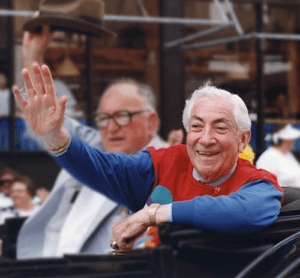By Phill Trewyn, Senior Account Executive
In 1962, the British record label Decca auditioned two young up-and-coming bands, one of which it signed to a contract. The signed band was named Brian Poole and the Tremeloes.
Decca dismissed the other group, reportedly because company executives asserted they “had no future in show business.” That band? The Beatles.
In the 1990s, author J.K. Rowling saw her Harry Potter manuscript rejected by 12 different publishing houses before Bloomsbury Publishing signed her to a contract. Reportedly that happened on the advice of the company chairman’s 8-year-old daughter who begged her father to print the book.
Out of tune or out of touch, people make mistakes. It’s inherent in our humanity. Wrong decisions or actions are made – big and small, personal and professional. There’s no magic wand or magic guitar chord that can prevent them.
While consequences of our mistakes can vary in extremes, it’s how an individual or organization reacts to them that can be as impactful as the miscue itself.
Honestly assessing how a mistake occurred and honestly taking ownership, either as an individual or as an organization, can go a long way toward salvaging reputation and perception among others.
In many cases, denial or cover-up only prolongs the consequences and in many cases can make them worse. While it can be very hard to put ego and pride aside, acknowledging a mistake and honestly explaining how and why it happened is the quickest way to regain trust and understanding.
Equally important is being open to the responses that others may provide upon acknowledgement of a mistake. Perhaps this is the most crucial part of getting past a mistake and its impacts because it’s an opportunity to learn how others perceive you or your organization. It’s an opportunity to not only try and make things right, but to become better at what you do moving forward.
Decca Records did not fold after missing on The Beatles. A year later, Dick Rowe, the executive who passed on what would become the Fab Four, followed a recommendation (from George Harrison) to see a new up-and-coming band. Rowe followed the advice and within a week of seeing that act, Decca signed the Rolling Stones.
No one wants to make a mistake. When they happen, though, it is an honest and thoughtful response coupled with focused determination on becoming better at what you do that will help move past the mistake quicker and easier.




